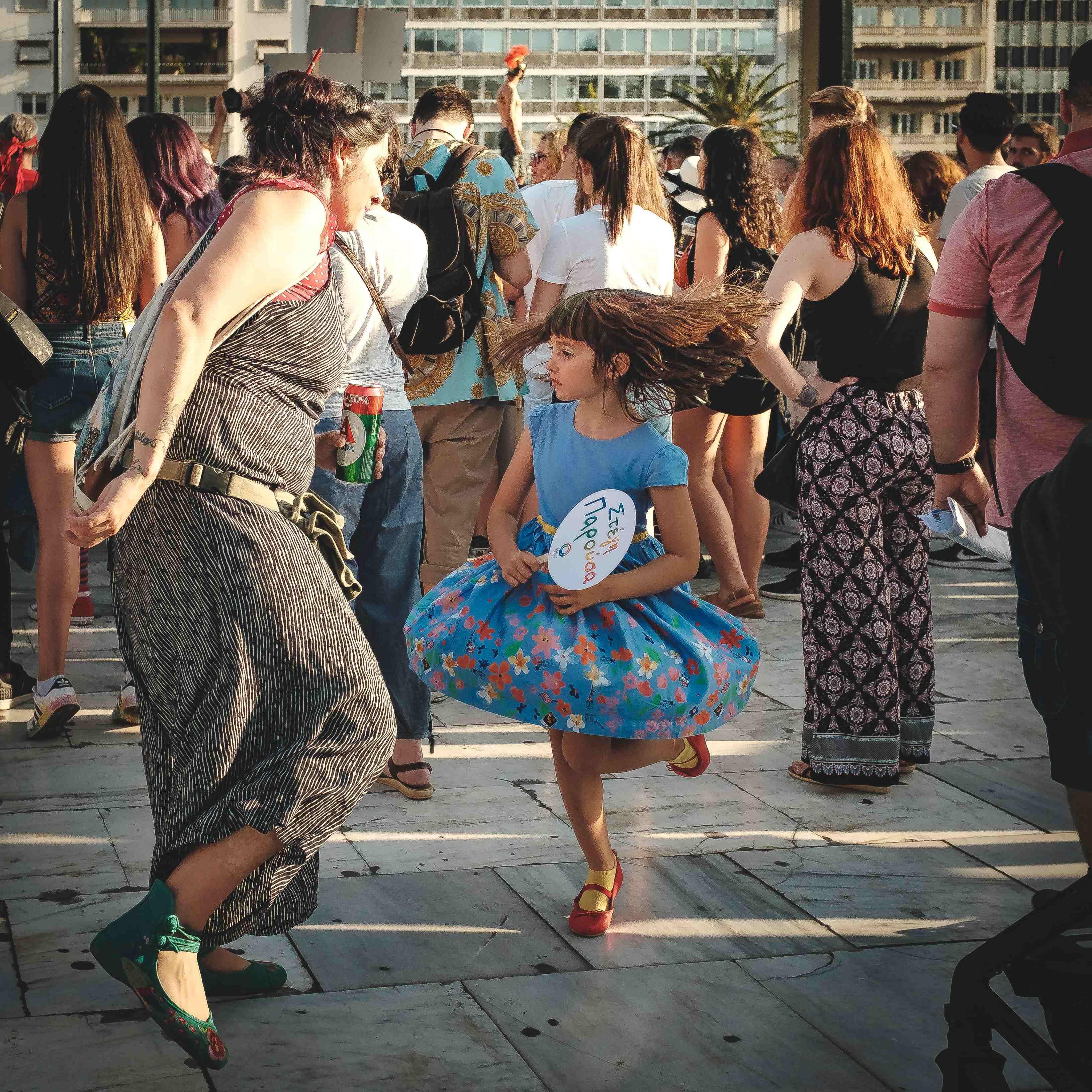Country report Greece:

Overall, the future outlooks and civic actions of young adults in Greece closely align with those of their peers in Germany, Italy, Poland and the United Kingdom, and they are more similar than they are different. In other words, the findings presented in the above also apply to 18- to 39-year-olds in Greece. Nevertheless, there are a few areas in which young adults in Greece differ from those in the other countries surveyed. Explore them here.
Across all five countries surveyed, confidence in established political and civil society institutions is low. Greece is the canary in the coal mine, with rock-bottom faith in government and the media. Thirty-eight percent strongly agree with the provocative statement that “politicians are puppets of powerful elites” (vs. 20% on average across all five countries) and a striking 58% strongly agree that the media pursue their own interests instead of reporting the facts (vs. 28% on average). It is not surprising, then, that merely a third believe that their own government will take a leading role in solving social and environmental problems (vs. 45% on average), with 16% saying the same in regard to the media (vs. 26% on average).
This widespread lack of faith in established institutions may be driving young Greeks to alternative channels of political expression. A larger percentage have taken part in protests than in the other countries surveyed (38% vs. 28% on average). Along with young Poles, young Greeks are also the most likely to have been motivated to start getting socially engaged engaged by taking part in a demonstration or protest. Belief in the political impact of the arts and culture is also highest in Greece, with 37% having been to a politically-oriented cultural event and 21% having been moved to take action themselves by artists, musicians and writers (vs. 13% on average).
Generally, young adults in Greece want a secure, affordable, eco-friendly and fair future society. Indeed, as a general trend, they express more emphatic priorities than young adults in any other country surveyed. They place particular emphasis on factors related to everyday livability and economic viability: child friendliness (80% vs. 56% across all the countries surveyed), high-paying job opportunities (78% vs. 54% on average) and high economic growth (69% vs. 47% on average). However, as in the other countries, only around one out of 10 prioritizes personal wealth. Moreover, social and environmental factors are also seen as critical: Seven out of 10 consider climate friendliness very important to the future they want to live in, and six out of 10 say the same as regards low social inequality.
("very important")
(vs. 56% across all countries surveyed)
("very important")
(vs. 54% across all countries surveyed)
("very important")
(vs. 47% across all countries surveyed)
As in the other countries surveyed, young adults in Greece are concerned about the future of their country (66% are pessimistic) – though not as much as Italians (75%) or Poles (70%). Many believe that in the next 10 years, living costs will rise (68%) and job creation and economic growth will slow (50% and 45%, respectively). Their outlook as regards the climate is more positive but not to the same degree as their peers: Forty-one percent believe Greece will become greener, as compared to 50% across all the countries surveyed.
Young Greeks are also particularly anxious about threats to democratic institutions, for instance, fake news and media manipulation (67% vs. 41% on average) and the erosion of the justice system (59% vs. 36%). They are most likely to predict that the coming decade will bring worse rather than better governance (46% vs. 25%) and a less rather than a more independent justice system (41% vs. 24%) and media (46% vs. 26%).
believe that living costs will rise
believe that job creation will slow
belive that economic growth will slow
By comparison, young adults in Greece are proactive in their approach to social problems. Most have taken individual actions like adjusting their energy use or consumption, and significantly more than in other countries have taken action at work, for example by standing up for work issues (58% vs. 44% on average) or even choosing or changing their workplace on ethical grounds (37% vs. 22% on average). Donating money or goods (78%) and boycotting socially and environmentally irresponsible products (54%) are also more common in Greece than in the sample as a whole (63% and 45%, respectively).
Young Greeks are also more likely than their peers abroad to take to the streets. Thirty-eight percent have joined a protest (vs. 28% on average) and 35% have participated in a citizens’ initiative (vs. 27% on average). Citizens’ initiatives show growth potential as well, with an additional +30% of young Greeks expressing interest in participating in the future. Signing petitions, on the other hand, is slightly lesspopular in Greece than elsewhere (46% vs. 57% on average).
Appealing to both altruistic and instrinsic motives could be equally as effective when it comes to motivating potentially active citizens in Greece. As in the other countries surveyed, the majority of those who are already active say they are driven by a sense of civic duty and the desire to be sure they did everything they could. However, Greece also stands out insofar as six out of 10 respondents testify to being driven by a desire for personal growth.
When it comes to barriers to civic action, young Greeks are more convinced than their peers abroad that engaging in civic action could be associated with risks or disadvantages (68% vs. 61% on average), but they are also generally more willing to tolerate such risks, particularly stress and frustration (52% vs. 43% on average) and conflicts with friends or family (52% vs. 48% on average). Most draw the line at the risk of legal or physical conflict, as well as at the prospect of lost income or job opportunities.
The Allianz Foundation Next Generations Study identified six engagement types in Greece and the other countries surveyed. Among those who have taken little to no civic action so far, 5% of young adults in Greece belong to the politically left-leaning group of Hesitant Progressives who have yet to act on their pronounced concerns relating to environmental and social justice. Members of the sizable Quiet Mainstream (23%) are also mostly inactive, but are less politically opinionated and interested. Their counterparts to the right are the Passive Traditionalists (7%), who despite their strong religious bent are not particularly involved in any social or environmental causes.
The smallest yet most organized of the three civically engaged groups are the Conservative Campaigners (11%), who through their actions seek to promote values of individual prosperity and national identity. The Proactive Center (37%) are less driven by any particular issue but nonetheless willing to be involved in shaping the future, preferably through individual actions. Finally, the Progressive Movers (17%) are the youngest and most left-leaning group, as well as the one with the highest overall level of civic engagement.
Hesitant Progressives
Quiet Mainstream
Passive Traditionalists
Conservative Campaigners
Proactive Center
Progressive Movers



